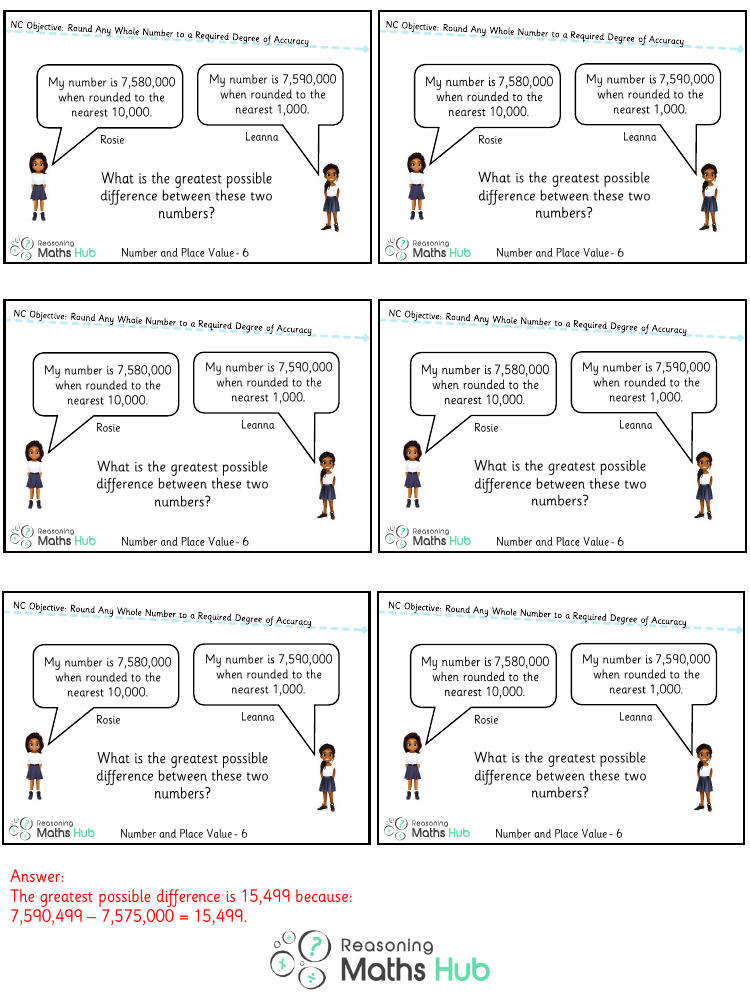Round Any Whole Number to a Required Degree of Accuracy 5 - Reasoning

Maths Resource Description
Teaching students to round any whole number to a required degree of accuracy is a fundamental skill in mathematics that enhances their ability to estimate and simplify numbers. This particular lesson focuses on the reasoning aspect of rounding, where students not only learn the mechanical process of rounding but also understand the rationale behind it. They will explore various scenarios where rounding numbers is necessary and discuss the implications of rounding to different degrees of accuracy. Through this, students are encouraged to think critically about when and why certain levels of precision are required, whether it be for everyday practicality or specific mathematical problems.
The lesson will typically involve a series of activities where students are presented with whole numbers and asked to round them to the nearest ten, hundred, thousand, or any other specified place value. They will need to identify the digit at the given place value and use reasoning to determine whether the number should be rounded up or down based on the digit to its right. As they progress, students will tackle more complex problems that require them to justify their rounding decisions and consider the impact of these decisions in real-world contexts. This approach not only builds their numerical skills but also fosters a deeper understanding of the concept of accuracy and its practical applications.